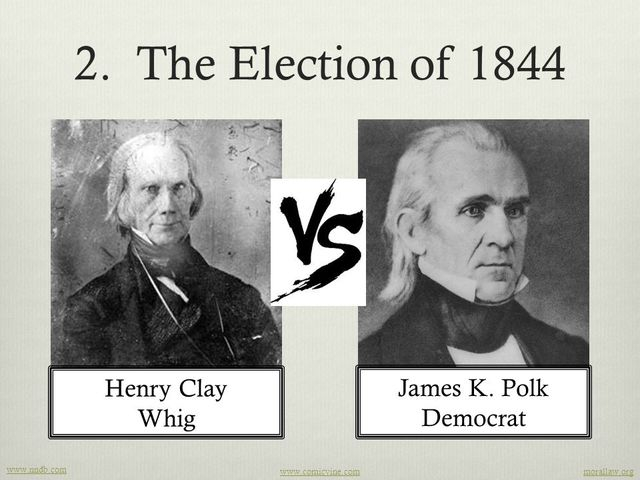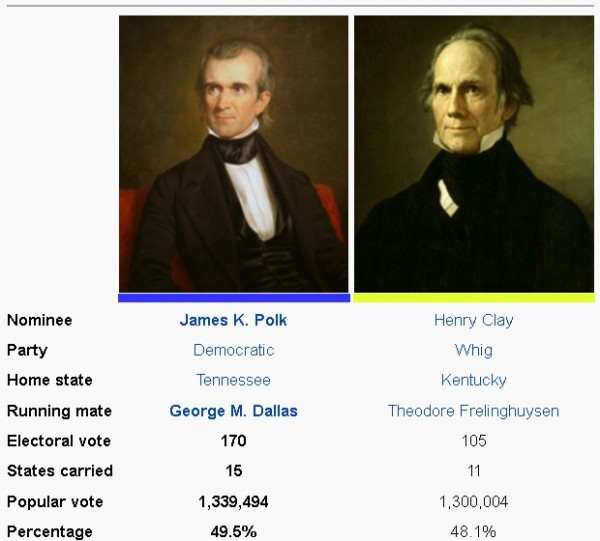He once lost the presidential election.
Clay left the Senate in 1842 and was nominated for president by the Whig Party in 1844. The annexation of Texas was the topic in 1844, which Clay opposed and his Democratic rival James K. Polk backed. Texas was annexed after Polk's victory. The Whigs' criticism is in line with their support for moderate growth in a market economy. Clay argued that a strategy that might result in conflict with Mexico should prioritize the gradual development of the seized territory rather than annexing Texas right now.
The Democratic Party's theory that growth and democracy were intertwined was rejected by the Whigs, who maintained that orderly progress, concord, free enterprise, and economic growth through the federal government were the true sources of individual and societal wealth. The annexation of Texas was viewed by Whigs as a retreat from the Confederate foreign policy tenets, a threat to the union's stability, and a call to selfishness and disunity. Additionally, the Whigs concluded that the Democrats had planned the annexation to reach the working classes and advance slavery.
The main reason James Polk's assessment defeated Clay in the 1844 election was the Democrats' capacity to make the annexation of Texas a top priority and connect territorial expansion with individual freedom. A vocal opponent of the Mexican-American War, Clay ran for the Whig Party's presidential nomination in 1848 but lost to General Zachary Taylor, who went on to win the popular vote.










